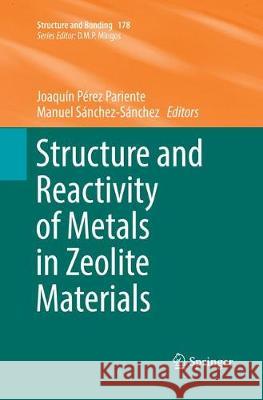Structure and Reactivity of Metals in Zeolite Materials » książka
topmenu
Structure and Reactivity of Metals in Zeolite Materials
ISBN-13: 9783030075460 / Angielski / Miękka / 2018 / 309 str.
Kategorie BISAC:
Wydawca:
Springer
Seria wydawnicza:
Język:
Angielski
ISBN-13:
9783030075460
Rok wydania:
2018
Wydanie:
Softcover Repri
Numer serii:
000127560
Ilość stron:
309
Oprawa:
Miękka
Wolumenów:
01











